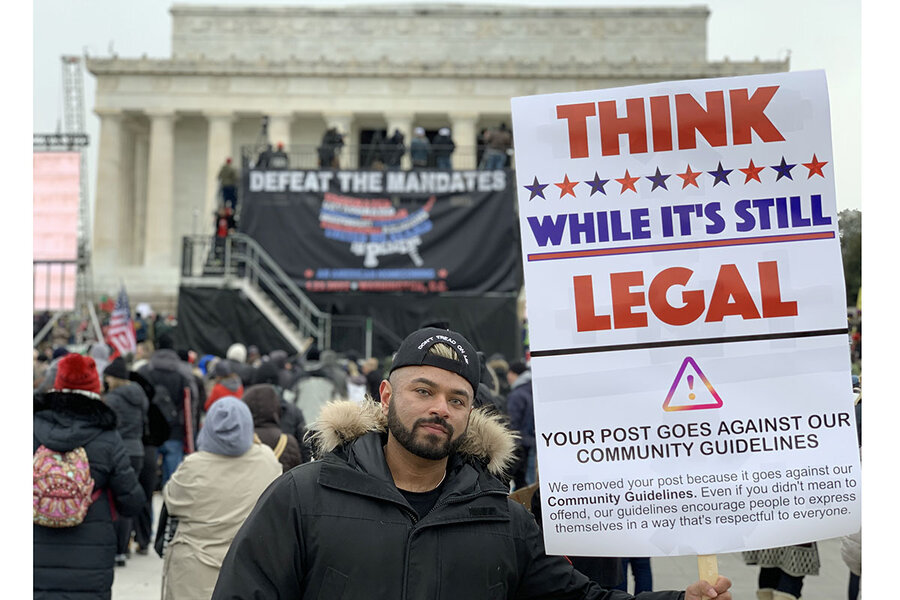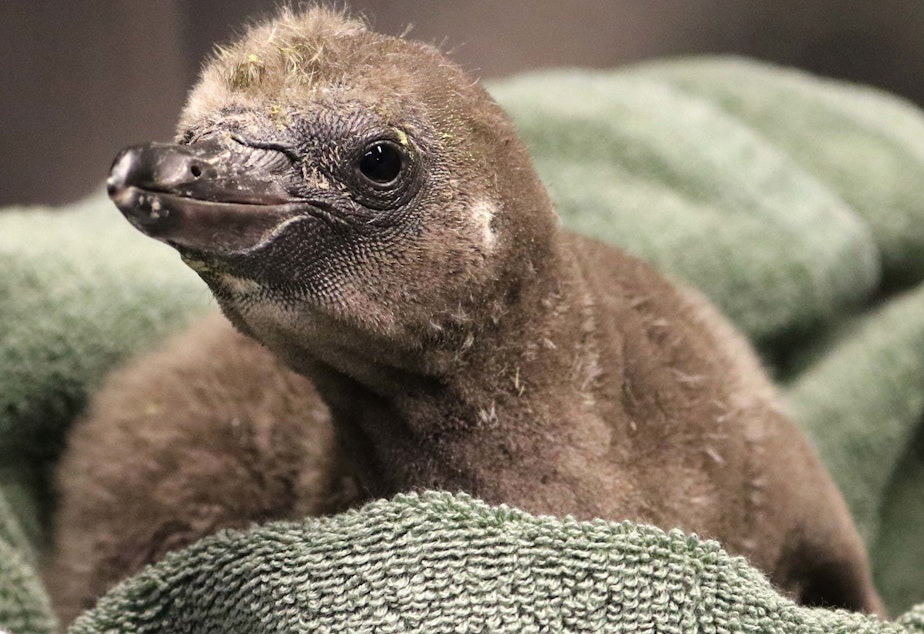The airline that carried monkeys part of the way to a U.S. research laboratory before they were involved in a highway crash in Pennsylvania says it will stop the shipments.
Kenya Airways will not renew its contract with the shipper when it expires this month, airline CEO Allan Kilavuka said in an email to The Associated Press.
Kilavuka did not identify the shipper who paid the airline to fly the animals from Mauritius, an island nation in the Indian Ocean, to New York.
The move by the African airline is the latest skirmish in a long-running battle between animal-rights groups and researchers — with airlines caught in the middle — over the use of animals in medical experiments.
On Jan. 21, a truck towing a trailer with 100 monkeys collided with a dump truck on a Pennsylvania highway. Several of the monkeys escaped. Authorities said later that three were shot and killed and they accounted for the rest.
The U.S. Centers for Disease Control and Prevention, which assisted local authorities after the crash and escape of some of the monkeys, said Tuesday that the monkeys are at an approved quarantine facility. A CDC spokeswoman declined to give the location of the facility or say what the lab intended to do with the monkeys.
Cynomolgus monkeys are often used in medical research because their DNA resembles that of humans, and they have been in high demand since the beginning of the pandemic for testing vaccines.
Monkeys were in short supply even before the pandemic. A 2018 report by the National Institutes of Health said half of researchers had trouble finding enough animals, which led to talk of talk of creating a “strategic monkey reserve.”
Nearly 27,000 non-human primates were imported into the U.S. in the 12-month period ending Sept. 30, 2020. That was down 21% from the previous year because of restrictions from the leading exporter, China, according to a CDC report.
The use of animals in research is controversial, however, and animal-rights groups have called for banning or limiting the practice.
After the Pennsylvania crash, People for the Ethical Treatment of Animals lobbied Kenya Airways to stop shipping monkeys to the unidentified lab in the U.S. The group said monkeys sent to labs are “tormented in experiments” that can cripple or kill them, and the research fails to produce treatments for humans.
On Tuesday, PETA asked U.S. Transportation Secretary Pete Buttigieg to investigate shipments of primates for research, saying it believes shippers are violating rules governing hazardous materials — in this case, monkeys that might carry disease.
Animal-rights groups in the United Kingdom and the United States have targeted airlines to stop shipping monkeys for research since the 1990s.
Most major airlines have stopped carrying research animals. In 2018, a biomedical trade group filed a discrimination complaint with the U.S. Transportation Department against United Airlines, British Airways and other carriers. The filing has drawn more than 1,000 comments.
Air France remains a holdout, according to animal-rights groups, despite years of pressure from primate expert Jane Goodall and various celebrities. The airline did not respond to a request for comment, but in the past it has said that research involving animals is vital to human health.
———
David Koenig can be reached at www.twitter.com/airlinewriter
Questions Remain After Highway Crash
Involving Monkeys
A Pennsylvania woman who had contact with them says she has signs of illness, but no one else has reported symptoms. And the airline that shipped them is getting out of the business.

Crates holding live monkeys were scattered across the road after an accident near Danville, Pa., on Jan. 21.
Credit...Jimmy May/Bloomsburg Press Enterprise, via Associated Press
By Michael Levenson
Feb. 1, 2022
In the 11 days since a truck hauling 100 monkeys from Mauritius crashed in Pennsylvania, one woman who got close to the scattered crates of monkeys on the highway has been treated for possible symptoms of illness.
And Kenya Airways, which is believed to have transported the monkeys to the United States, has decided not to renew its expiring contract to ship research primates here.
No other reports of possible illness related to the crash have emerged, according to state and federal health officials, who said it was not known whether the Pennsylvania woman’s symptoms were related to the cynomolgus macaques, which were being quarantined and monitored for diseases.
Experts said that direct exposure to monkey saliva or feces could be dangerous, but that the risk of a broader outbreak was low.
The woman, Michele Fallon, 45, of Danville, Pa., said on Tuesday that she had been given two doses of the rabies vaccine, antiviral medication and antibiotic eye drops after she had a runny nose, a cough and filmy buildup and crust in her eye. She also vomited over the weekend, she said, possibly because of the antiviral medication.
She said her eye was much improved and that she was “feeling better,” though she still felt “queasy.”
She said she was awaiting the results of a blood test for monkey-borne diseases and was grateful for advice she had been receiving from Dr. Lisa Jones-Engel, a primate scientist who works with People for the Ethical Treatment of Animals, which has long opposed primate research and has asked two federal agencies to investigate the crash.
Ms. Fallon said she was driving home on Jan. 21 in Montour County, about 150 miles northwest of Philadelphia, when she saw the crash, in which a dump truck hit a pickup truck that was hauling a trailer with the macaques. The monkeys had arrived at Kennedy International Airport in New York and were on their way to a quarantine facility.
Ms. Fallon stopped to see if anyone was hurt and found crates strewn across the roadway.
Told by a bystander that cats might be inside, she stuck her finger in one and saw brown fur. When the animal made a “weird noise,” she put her face closer to get a better look. That’s when, she said, she noticed that it wasn’t a cat but a monkey, which “hissed” at her. She said she felt a mist
She also stepped in monkey feces, she said.
That night, she went to a party with people who later tested positive for the coronavirus, she said. Ms. Fallon said that while she herself had tested negative, the series of events added up to “the worst day of my life.”
Three of the monkeys escaped after the crash, but were quickly found and “humanely euthanized,” the Centers for Disease Control and Prevention said, without offering further details.
The C.D.C. referred questions about Ms. Fallon’s condition to the Pennsylvania Department of Health and her doctor, saying it does “not provide clinical care for individuals.”
Barry Ciccocioppo, a spokesman for the Department of Health, said in an email: “It is not known if that individual’s medical condition is related.”
“We take any report of exposure to these nonhuman primates very seriously,” Mr. Ciccocioppo said. “The Department of Health recommends that anyone who thinks they may have been exposed to a nonhuman primate to contact their health care provider.” The doctor can then consult with the department about the risks and best course of treatment, he said.
Ms. Fallon’s doctor’s office referred questions to the Geisinger health system, which did not immediately respond to an email and phone call.
In a letter issued to the authorities after the crash, the C.D.C. said that anyone who was within five feet of the monkeys’ crates without respiratory and eye protection should monitor themselves for signs of illness such as fever, fatigue, cough, diarrhea and vomiting.
The letter noted that monkeys and humans are naturally susceptible to many of the same diseases. It said the surviving monkeys would be quarantined and monitored for infectious diseases for at least 31 days.
Mr. Ciccocioppo described the letter as “precautionary and a form letter used in such incidents.”
Michael L. Kull, the chief of the Valley Township Fire Department, said that he and other emergency personnel who responded to the crash did not get close enough to the monkeys to risk any kind of infection.
“Out of an abundance of caution, we will be careful,” he said, but added that he was unconcerned. “I have lost no sleep.”
Dr. Christine Petersen, director of the Center for Emerging Infectious Diseases at the University of Iowa, said serious diseases like monkey pox and Ebola are rare in cynomolgus macaques, but that “precaution should be taken” by anyone who may have come into contact with one.
“A cornered monkey is not the kindest of creatures,” she said. “If they did get bitten or spit on, that’s worrisome.”
“But what are the odds that any three random monkeys could somehow spread something dastardly to a first responder?” Dr. Petersen added. “It’s not high.”
Dr. Suresh V. Kuchipudi, a clinical professor in the department of veterinary and biomedical sciences at Pennsylvania State University, said that so long as someone who has been too close to a wild animal like a macaque is receiving treatment for any infection, the risk of it spreading to other people is low.
Public health concerns were not the only fallout from the crash.
After PETA contacted Kenya Airways, the company said last week that it would not renew its contract for the transportation of macaques when it expires this month. In doing so, it joined several airlines, including major American carriers, that have refused to transport animals used in medical research.
PETA claimed victory in a news release. It has also asked the U.S. Department of Agriculture and the U.S. Department of Transportation to investigate the crash, warning of a dangerous lack of oversight for the transportation of primates.
“U.S. laboratories haven’t been able to prevent tuberculosis, cholera, campylobacteriosis, Chagas’ disease or other deadly pathogens from infecting the monkeys they cage and experiment on,” Dr. Jones-Engel said in a statement, “and they still put these monkeys on trucks that travel our highways nationwide.”













